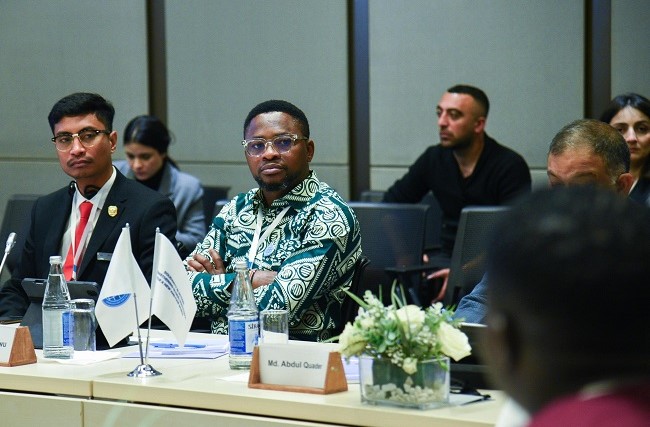With the world gathering in Bonn, Germany, for the 62nd session of the Subsidiary Bodies (SB62) of the United Nations Framework Convention on Climate Change (UNFCCC), Nigeria especially has to pay close attention to climate financing and loss and damage. Significant climate change endangering the nation’s economy, ecology, and way of life for millions of people calls for attention. Resilience against climatic effects and sustainable development for Nigeria depend on addressing these challenges by means of international collaboration and finance.

Particularly in underdeveloped countries, climate funding is the financial support for projects linked to climate change. For Nigeria, this money is absolutely essential for various purposes.
Climate funding can enable Nigeria create infrastructure more suited to resist the effects of climate change. This covers expenditures on better water management systems, flood barriers, and climate-resilient farming techniques.
Nigeria’s economy depends mostly on oil exports; hence it is sensitive to environmental damage and price swings. By helping to promote economic diversification and job creation in sustainable industries, climate finance can enable a change towards renewable energy sources.
Improving public health depends on investments in climate-resilient health systems to help to mitigate public health hazards connected with climate change. Climate funding can help projects aiming at the prevention of climate-related illnesses and guarantee that communities have access to necessary healthcare facilities.
Access to climate financing fits Nigeria’s dedication to the Sustainable Development Goals (SDGs), especially those meant to eradicate poverty, guarantee clean water and sanitation, and support sustainable cities and communities.
Loss and Damage are the negative outcomes of climate change that cannot be controlled or adjusted for, therefore having major social and financial implications. For Nigeria, the ramifications are dire:
Economic Losses: Climate-induced catastrophes such floods and droughts have already caused significant economic losses influencing livelihoods, infrastructure, and agriculture. As climate conditions deteriorate, populations can be compelled to flee their homes, resulting in internal displacement and more strain on metropolitan centres.
The loss of biodiversity and ecological degradation brought on by climate change might have long-term effects on Nigeria’s natural resources, therefore influencing livelihoods and food security.
Nigeria has a special chance at SB62 to promote better procedures to mitigate loss and harm as well as more climate financing. Important areas of concentration should consist in: Nigeria has to advocate for wealthy countries to keep their financial obligations and create trustworthy financing sources to assist in climate adaption and recovery projects. Technology Transfer: Talking about the creative ideas and technology transfer can help Nigeria to embrace sustainable practices and strengthen resistance against climate effects.
By means of education and training programmes, investments in local communities will equip them to successfully address climate problems and support the resilience of the country. Strengthening alliances with other countries and organisations can help Nigeria to solve climate problems and maximise available resources.
It is impossible to emphasise the seriousness of climate financing and loss and damage for Nigeria as the debates at SB62 progress. The country confronts major issues endangering its future, and the whole community has to come together to offer the required help.
Nigeria can build a sustainable and resilient future by ensuring sufficient climate funding and mitigating loss and damage, therefore preserving the welfare of its people and the condition of its ecosystems.
Turning the tide against the effects of climate change depends critically on the international community’s desire to assist Nigeria in these activities.
By Olumide Idowu, Founder & Executive Director, ICCDI Africa
